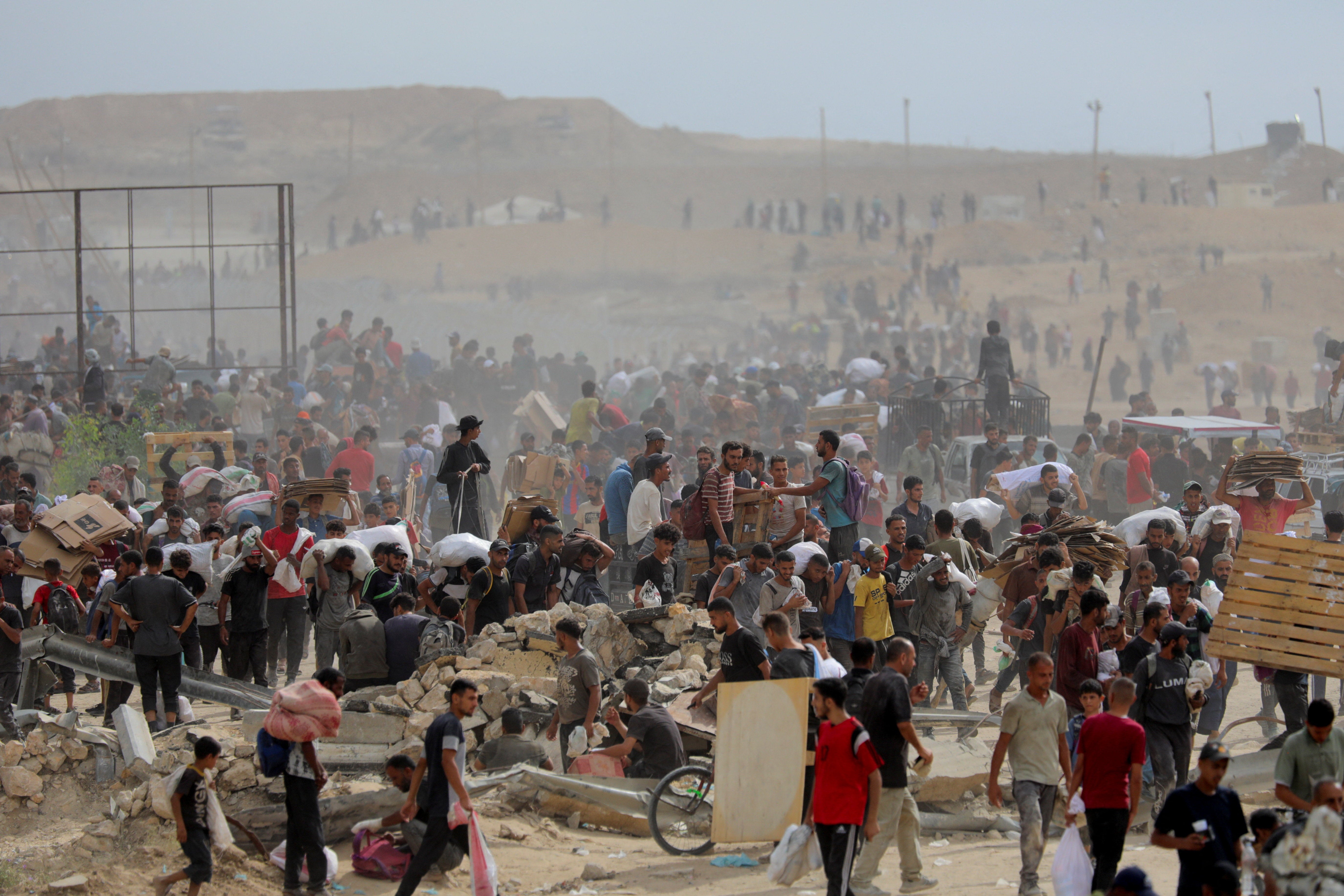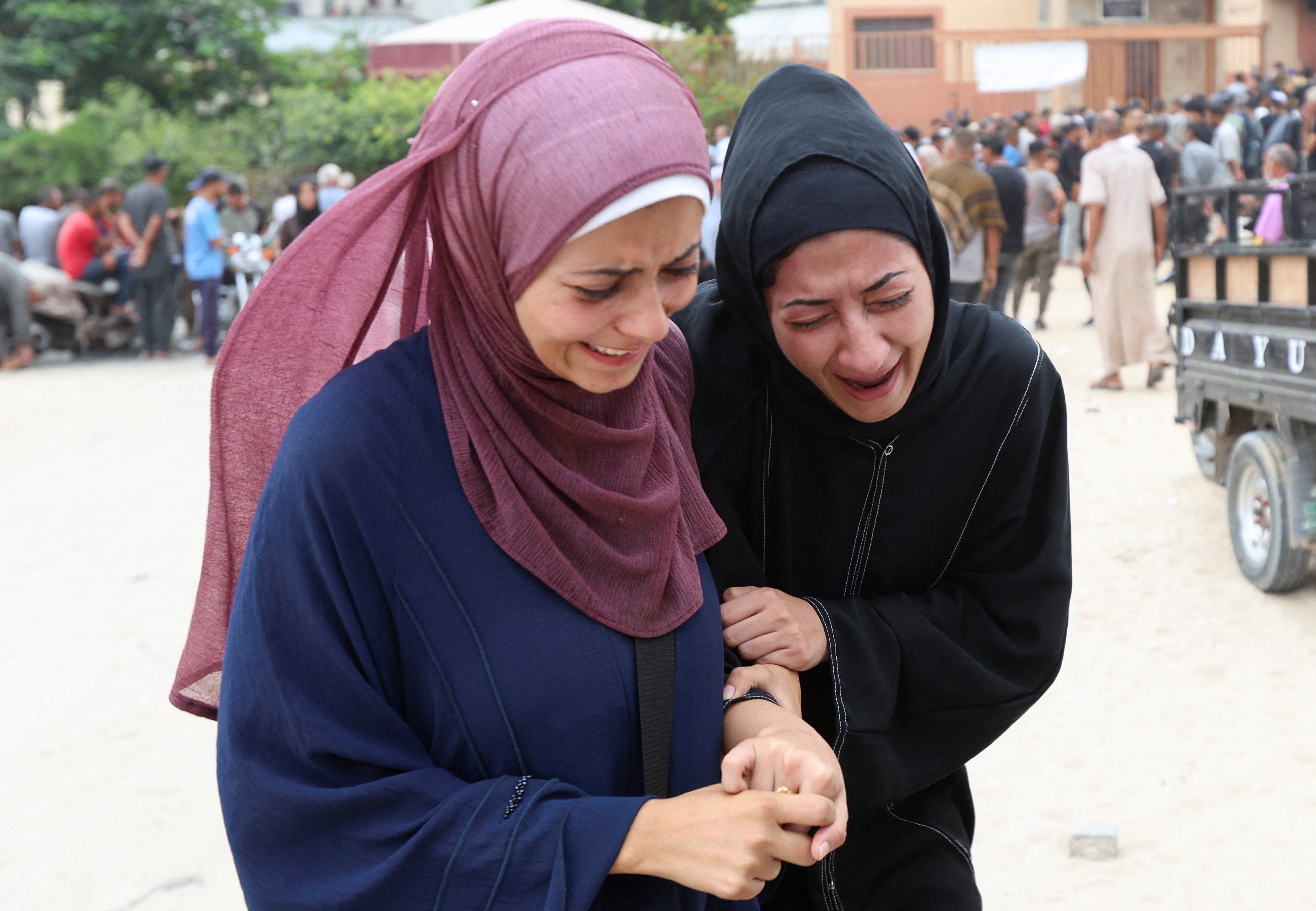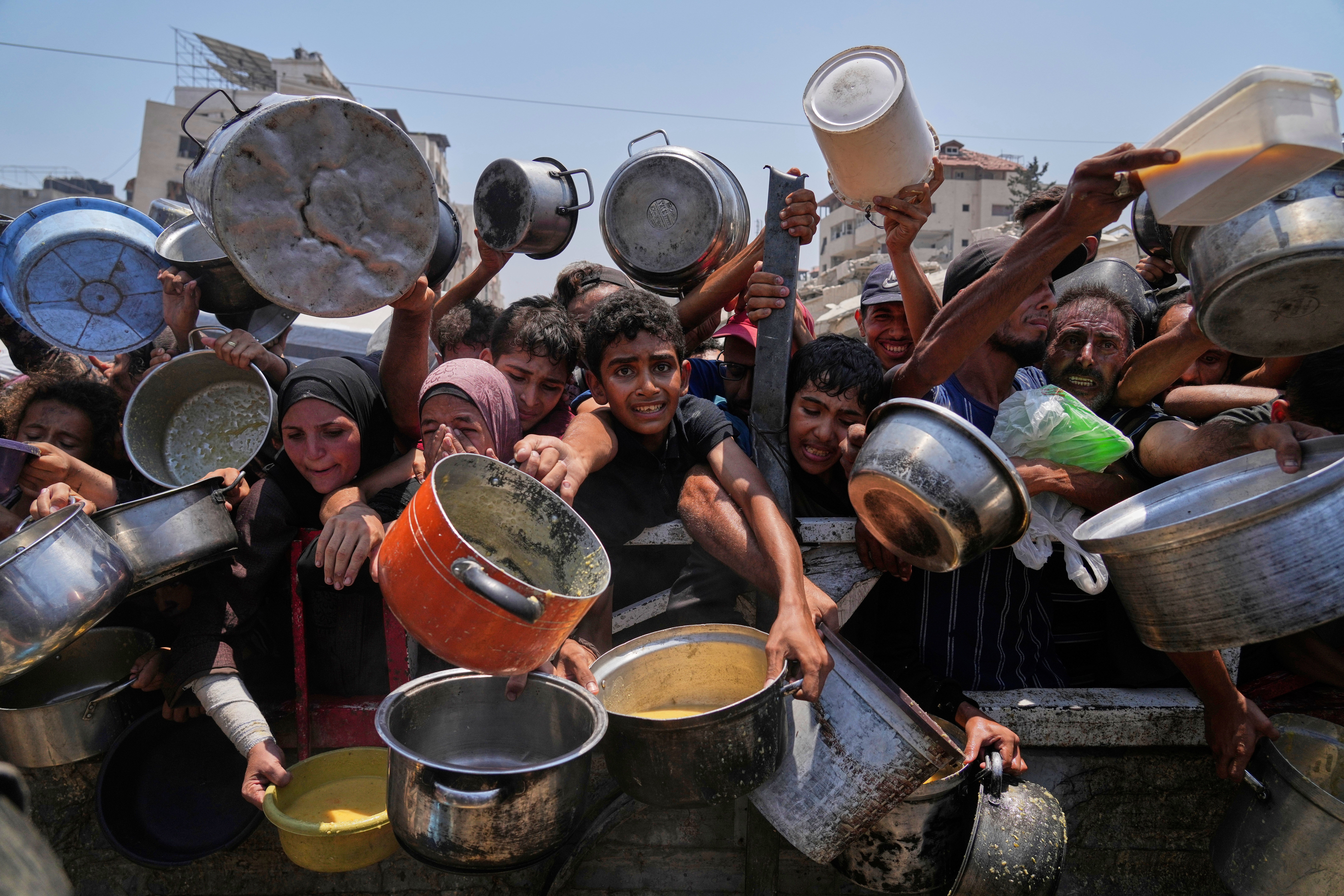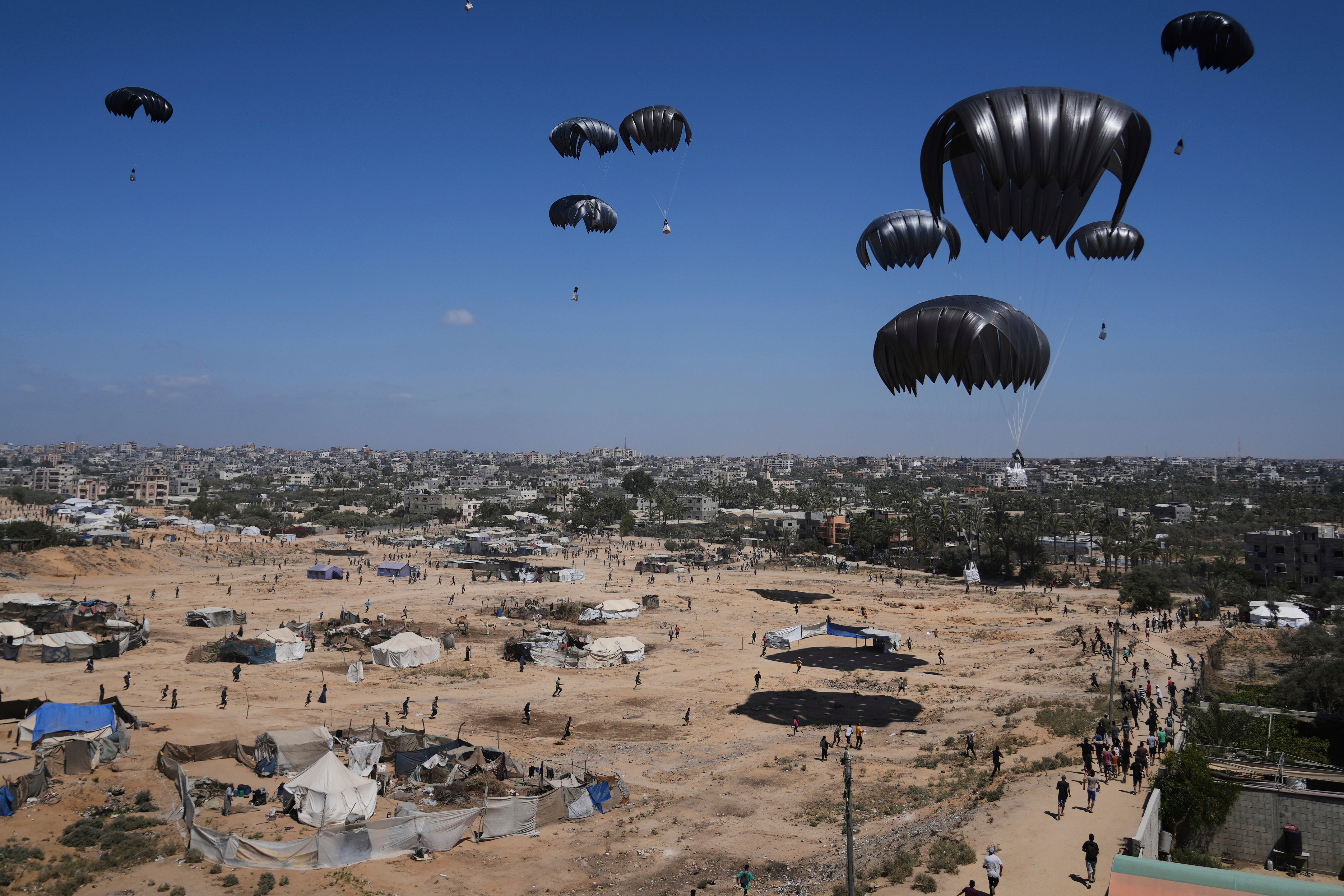As the international community embroils itself in a row about Palestinian statehood, the crisis of hunger in Gaza continues to deteriorate – and starving Palestinians say they are struggling to survive.
Reports of starvation in the enclave persist despite an increase in aid deliveries via the controversial US-backed Gaza Humanitarian Foundation and air drops by Jordan, Germany and France. These efforts, Palestinians say, are changing nothing on the ground.
“This is not life,” Asmaa Abu Diya, a 46-years-old mother of eight, tells The Independent. “We are not living a dignified life. The state we have reached is difficult to describe in words. There is no life.”

The challenge of finding food and aid has become known as the “death journey”, Ms Diya says, a journey her son takes regularly. “Either they bring us something and return safely, or they come back dead.
“My son went to get American aid, and a quadcopter dropped a bomb on them, killing people right in front of his eyes. Four people were cut into pieces. My son was hit by shrapnel in his chest, and it remains there to this day,” she adds.
“If our children don’t go to die, we won’t eat.”
On Thursday, the UN’s humanitarian office (UNHCR) said that at least 1,373 Palestinians have been killed while trying to reach aid since the GHF took over aid distribution in May. At least 859 of these killings have been near GHF sites, most by the Israeli military, it says.

The GHF denies the killings are a result of its aid distribution practices, accusing Hamas of “spreading disinformation” by “falsely attributing” casualties to the agency. The agency, along with Israel and the US, says that systematic theft of aid by Hamas is the reason there is starvation in the strip. Israeli military officials and US government analysis have cast doubt over such claims.
Another 91 Palestinians were killed at aid sites on Thursday, Gaza’s health ministry said. Despite this, US ambassador to Israel Mike Huckabee hailed the “incredible” job of the GHF, following a visit to the Gaza Strip on Friday alongside Donald Trump’s special Envoy Steve Witkoff.
The visit came ahead of the expected unveiling of a new humanitarian aid plan for Gaza touted by Mr Trump during a visit to Scotland earlier in the week, in which the US would set up new food centres.
Shortly after Mr Trump’s departure on Tuesday, the British prime minister Sir Keir Starmer was embroiled in a diplomatic row by threatening to recognise the State of Palestine in September unless Israel dramatically changed the course of its actions in Gaza. France had recently become the first G7 state to promise to recognise Palestine, and Canada has since vowed the same.

For Gazans, however, diplomatic posturing makes little difference in their desperate pursuit of food and resources.
“We don’t just want political statements; we want real action on the ground,” says Umm Odary Nassar, 45, who has two children. “We want them to recognise us on the ground and in a realistic way. Not in a way that makes us feel insensitive. Recognition is meaningless if there is no change on the ground.”
As for Mr Trump’s promise of new food centres, Ms Nassar said she doesn’t consider any positive-sounding statements to be of worthwhile “unless they are implemented on the ground and real change is achieved”.
The levels of starvation in the Gaza strip is the “work of Netanyahu and Israel, with full support from Trump”, Ms Nassar said – and despite a supposed increase in aid deliveries, the people of Gaza say they are not noticing a significant change.

“The aid so far has only been symbolic because the quantity is very small in relation to the number of people and doesn’t suffice for all people’s needs, and the types of aid are not enough for everyone,” says Ms Nassar.
“We have been living on canned food for two years. Our children have become dwarfs due to the lack of food and nutrition. Everyone has brittle bones and health, and psychological problems.”
Recent air drops by France, Germany, the UAE and Jordan – an initiative which the UK aims to join, Sir Keir said – have done little to alleviate a growing crisis of hunger, residents say.
Ms Nassar describes them as a “theatrical performance” which benefits only Israel.

“As the world sees them, they are airdrops, and they allow aid. But I haven’t actually heard from any segment of society that they’ve benefited from them,” she says. “Most of this aid is dropped in prohibited areas, forbidden to enter, and entering them is considered suicide.”
Ms Diya says the air drops “don’t exceed five truckloads”. She adds: “All of this is death. For me and others, we consider it a smokescreen for the world. Even if they come and bring aid, it’s not enough.”
Ms Nassar adds: “We’ve reached the point where there is no life, we’ve reached the peak of starvation. The story of bread has become a tragedy. We are now in an age where a mother distributes a livelihood to her children.”




